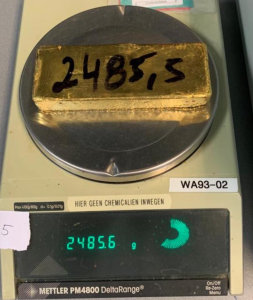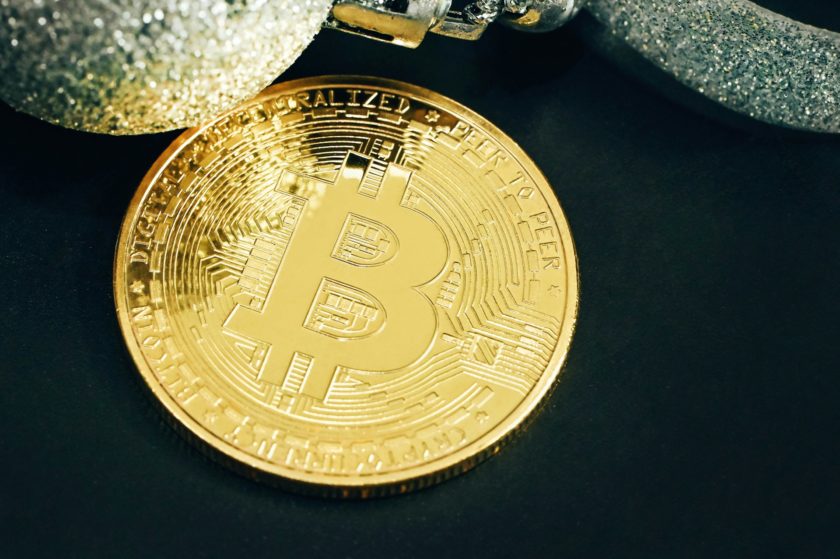A 27-year-old Brazilian man was arrested at Schiphol Airport in Amsterdam Friday for failing to declare 15 kilograms of gold bars to customs, according to local reports. After failing to provide a convincing explanation as to how he acquired the gold, the traveler flying from Rio de Janeiro to Hong Kong was placed under arrest on money laundering suspicions. The news has crypto Twitter alive with chatter, bringing renewed focus to the benefits cryptocurrencies like bitcoin can bring to the table, where privately traveling with large sums of money is becoming increasingly difficult.
Also read: Bitcoin Gold Whale Allegedly Controls Half the BTG Supply
Gold Carrying Traveler Arrested in Amsterdam
The arrest, as reported by Dutch media, notes the man was taken in by the Royal Military Police “because he had 15 kilos of gold bars in his luggage,” and “couldn’t give a good explanation for that.”
The Netherlands Royal Police gave further details in a Facebook post stating that “Customs staff checked the luggage of the man who came from Rio de Janeiro and was traveling to Hong Kong. He turned out to carry six gold bars in his hand luggage with a total weight of almost 15 kilograms … and was arrested by investigators from the SVLM on suspicion of money laundering.”
The translated post further details: “The man is trapped and the gold, a cell phone and about 750 US dollars have been seized. Investigators from SVLM conduct further investigations under the direction of the Public Prosecution Service Noord Holland.” SVLM, to be clear, is a collaborative regulatory effort comprising customs, the Netherlands’ Fiscal Information and Investigation Service (FIOD) and Royal Military Police.

Pro-Bitcoin Social Media Reacts
It wasn’t long after the news hit Twitter that bitcoiners and advocates of economic freedom began not only to roast Netherlands authorities for the privacy invasion, but also to remind everyone of what they view as the benefit of borderless digital money while traveling.
“That’s why you need crypto to move gold,” one user replied to the news, “Sell gold before taking off for crypto. Buy gold with crypto in the new country. Problem solved…” Twitter handle @Coinosphere one-upped this idea with the comment: “Now just skip the gold parts and you’ll be up to speed.”
Another user, @rusticbison, wrote: “Gold is expensive to move, easy to steal at border crossings (I’ve got the gun, so it’s mine now). Bitcoin is cheap to move, often impossible to steal at border crossings. Gold is a stable store of value, but it is not portable. It has to remain in a stable jurisdiction.”
User @LightningSats sarcastically remarked:
How dare this individual own an asset the state doesn’t want him to own. Thank god they caught him, who knows what could have happened if they didn’t.
Not lost on many commenters was the fact that a man was kidnapped on mere suspicion, generated by carrying a store of value. Bitcoin — since it exists on a distributed digital ledger — can be carried as a small cold storage device on a keychain, a seed phrase on some paper tucked into a book, or on a phone or computer. It can also be very private compared to traveling with the shiny, heavy stuff.
While some feel those holding value while passing through customs — like the Brazilian man at the Amsterdam airport — should always obey the law and declare what they are carrying, others think it’s nobody’s business unless there is legitimate suspicion of a crime.
Simply having a lot of money should not, in and of itself, incriminate anyone. Thanks to the rise of civil asset forfeiture laws, however, stories of police stealing large sums of money from the public have now become the norm, and the recourse required to reclaim stolen assets can end up costing a fortune for the extorted. If you’ve got a seed phrase stored in your brain wallet however, that kind of abuse could be a hell of a lot harder for authorities to pull off.
What are your thoughts on the arrest of this man for carrying undeclared gold? Let us know in the comments section below.
Disclaimer: This article is for informational purposes only. It is not an offer or solicitation of an offer to buy or sell, or as a recommendation, endorsement, or sponsorship of any products, services, or companies. Bitcoin.com does not provide investment, tax, legal, or accounting advice. Neither the company nor the author is responsible, directly or indirectly, for any damage or loss caused or alleged to be caused by or in connection with the use of or reliance on any content, goods or services mentioned in this article.
Images courtesy of Shutterstock, fair use.
Did you know you can buy and sell BCH privately using our noncustodial, peer-to-peer Local Bitcoin Cash trading platform? The Local.Bitcoin.com marketplace has thousands of participants from all around the world trading BCH right now. And if you need a bitcoin wallet to securely store your coins, you can download one from us here.






